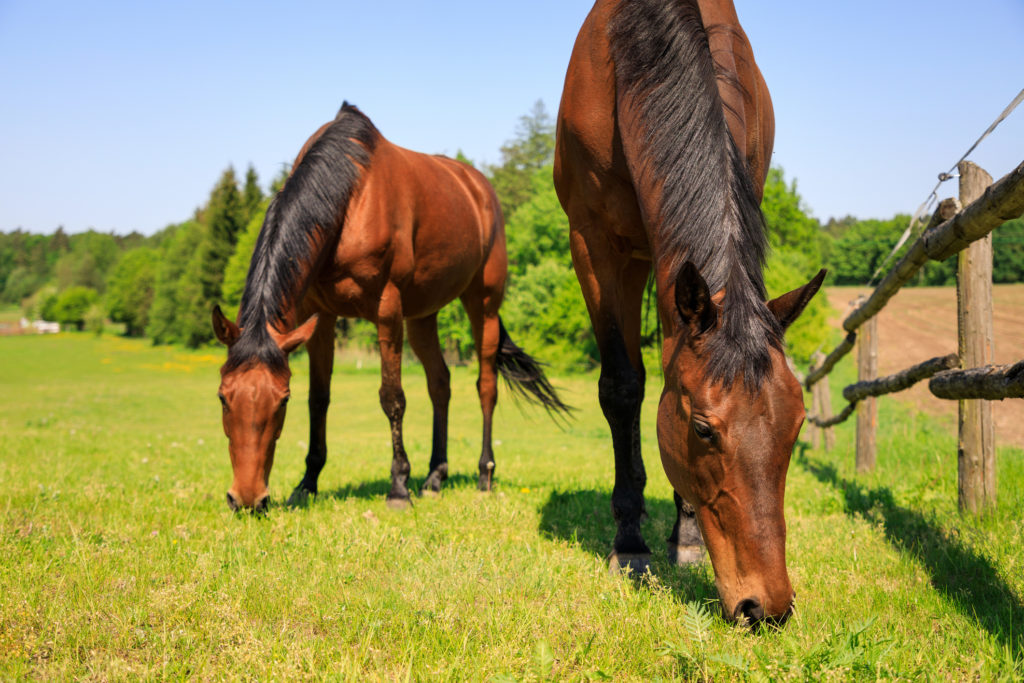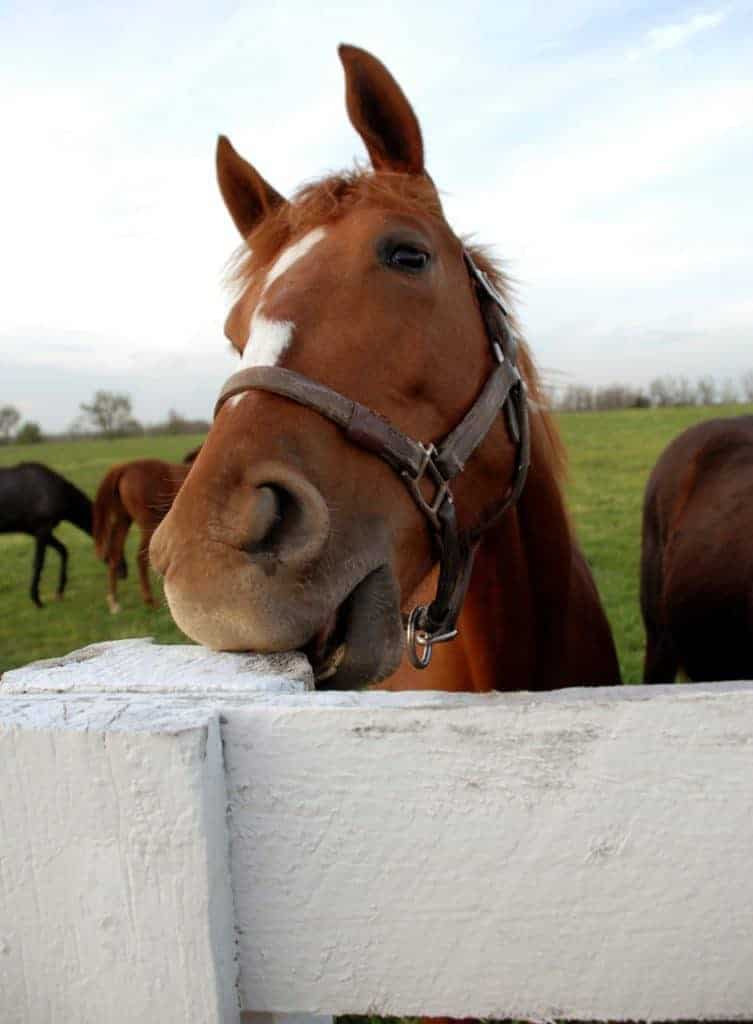
The Role of Antioxidants for Horses
Antioxidants (which include vitamins E, C, and A, selenium, glutathione, lipoic acid, coenzyme Q10, and isoflavins) act to stabilize free radicals and halt oxidative damage. Here’s a look at how they function.

Antioxidants (which include vitamins E, C, and A, selenium, glutathione, lipoic acid, coenzyme Q10, and isoflavins) act to stabilize free radicals and halt oxidative damage. Here’s a look at how they function.

Could feeding antioxidants to your horse help him through a performance problem? Antioxidants, whether found in the diet or supplemented, could potentially help exercising horses experiencing oxidative stress, one nutritionist says.
Ever wonder why some minerals (such as copper, zinc, iron, and selenium) are referred to as “trace minerals” while other minerals (such as calcium and phosphorus) are not?
Feeding high-performance horses is a challenge. If nutritional requirements are met appropriately, performance can be improved over those horses which are fed imbalanced diets in irregular amounts. When working with a veterinarian or nutritionis

Although horses only need relatively small quantities of vitamins, the lack of those tiny amounts can be devastating to your horse’s health.
We ask an awful lot of an animal who walks on his middle toenails. Humans have recognized for centuries that the foundation of a horse’s soundness lies in his hooves–“No foot, no horse” is about as basic a principle as there is. It all comes

Is chewing pressure-treated wood (the green-tinged wood) dangerous for horses?
Learning to interpret the information supplied by the manufacturer isn’t all that difficult, and it can tell you whether the feed you’re buying is truly the best choice for your horse.
Researchers at Oregon State University and elsewhere are continuing to examine the role of vitamin E in horse health, including disease prevention and therapy. In particular, vitamin E deficiencies and/or supplementation could be important
Of all the ingredients of a horse’s diet, minerals are unique. Here’s a rundown of the most important minerals in your horse’s diet.
You can’t watch TV for more than half an hour these days without viewing at least one ad preaching the virtues of a balanced diet. Public service announcements emphasize the value of getting enough servings of fruits and vegetables. Cereal
We don’t have all of the answers when it comes to feeding young horses. A nutrition program that doesn’t promote–and possibly helps prevent–developmental orthopedic disease (DOD), including osteochondritis dissecans (OCD), is critical at this
Dr. Sue McDonnell addresses readers’ questions about an older pony’s grumpy behavior and why horses might eat dirt.
Administration of hematinics (also known as blood builders) to horses, either in the form of dietary supplements or as injectable compounds, is commonly practiced by owners, trainers, and veterinarians.
Fed in the recommended amounts, the vast majority of hoof supplements will do no harm to your horse, but beware of feeding higher levels than suggested on the label, or doubling up with multiple supplements.
Look around any barn and you’ll see the evidence. Do you know a feed room that doesn’t have a collection of jugs and buckets, pails and little plastic scoops, pellets and powders in a rainbow of colors? The ingredients range from high-tech
Stay on top of the most recent Horse Health news with
"*" indicates required fields